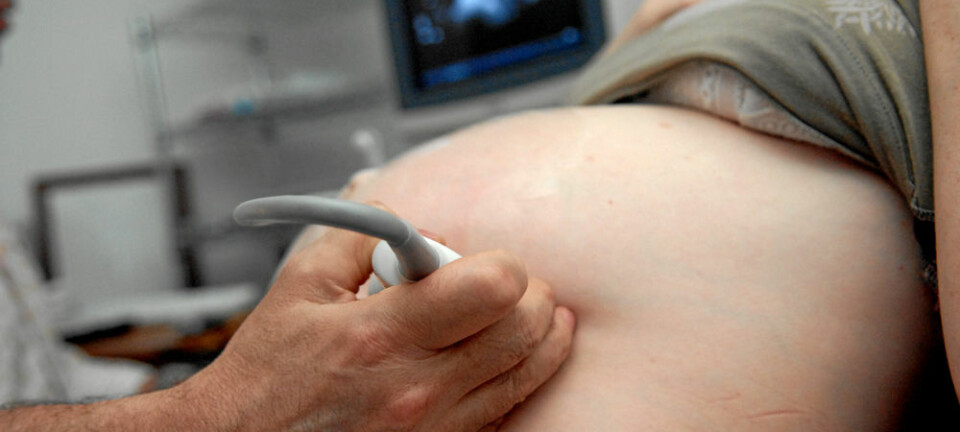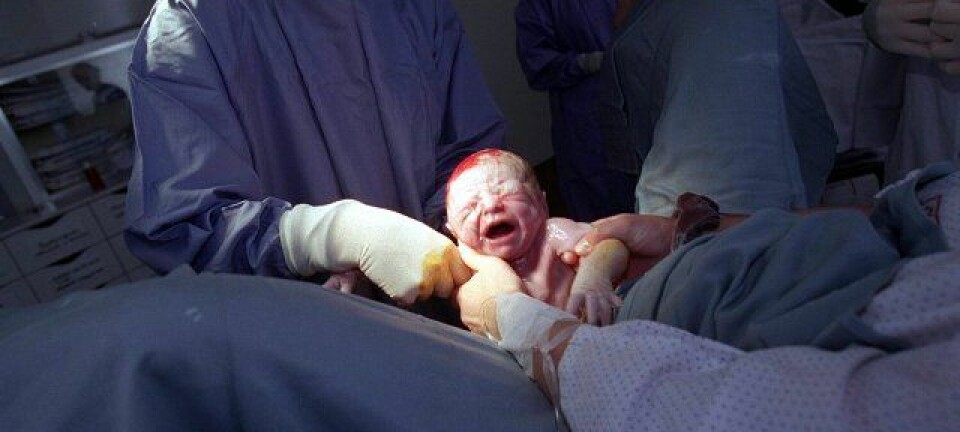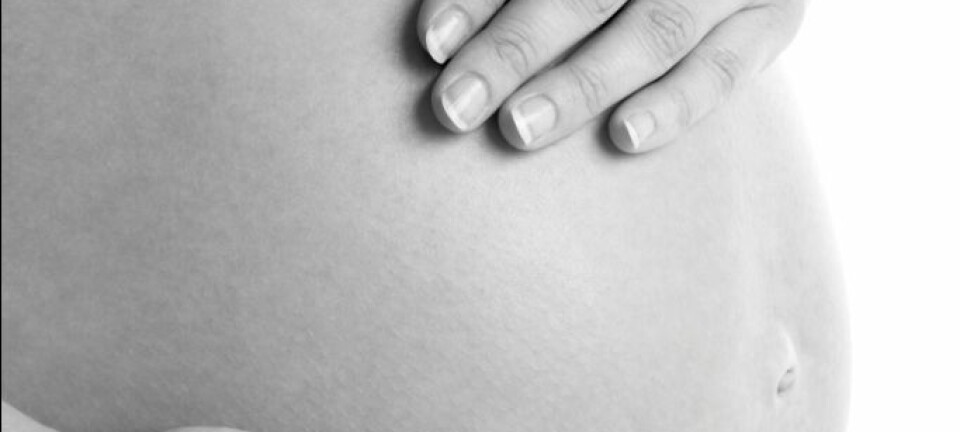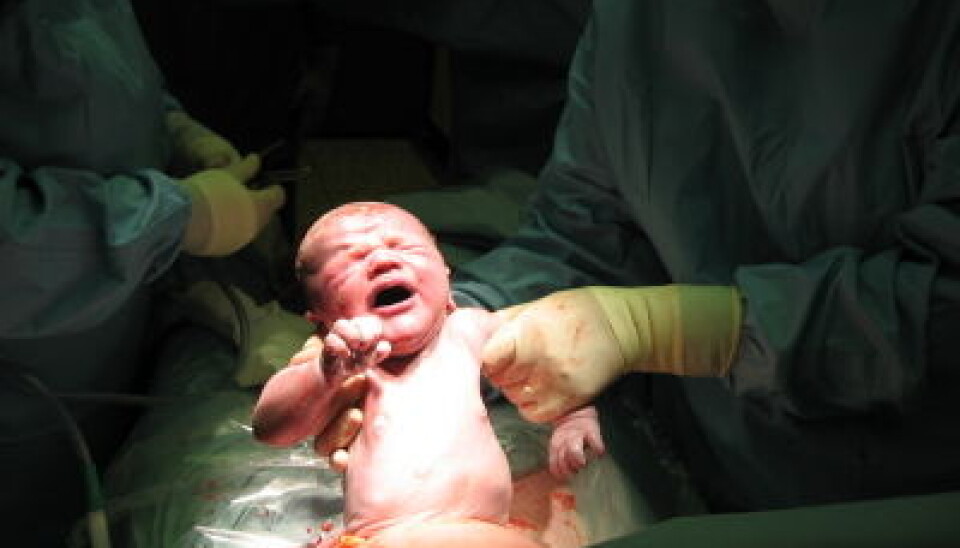
Midwife training promotes mother-child attachments
Women who have given birth by Caesarean section may find it difficult to relate to their newborns. Special training can give midwives the tools they need to help these mothers.
Research has shown that mothers who have had C-sections can find it harder to form an immediate bond with their children than mothers who give birth the natural way.
Caesarean sections involve major surgery, and mothers who have just undergone the operation may find that it affects the mother-child relationship.
“Caesareans are painful and it takes a long time before you can move about without hurting. This affects the mother's ability to lift her infant and meet its needs. That in turn probably affects the relationship between mother and child,” says Research Fellow Stina Thorstensson of Ørebro University in Sweden.
Thorstensson has studied ways to improve the situation for C-section mothers.
Coursework and homework
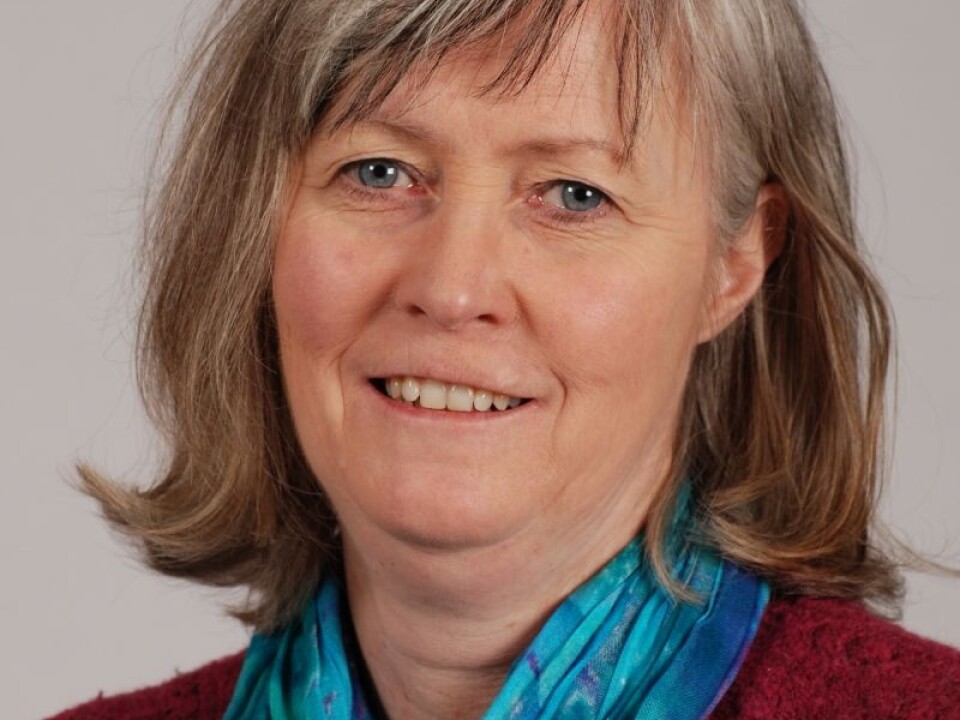
Ten Swedish municipalities participated in a study in which half gave midwives extra training in the form of a course.
The other five municipalities were used as controls, where midwives weren't given the additional education.
The course lasted seven days and included homework.
These health workers were given supplemental information about breastfeeding, pregnancy and parenting, and they were urged to reflect more on their personal experiences with pregnancies, births and breastfeeding.
Winning combination
“The combination of facts and reflections altered the midwives’ attitudes towards their work,” says Thorstensson.
She explains that the content of the course is now standard fare in Sweden's midwifery curriculum, but that some of the study's participants had graduated from university before the coursework had been added to the national educational programme.
After the course, midwives continued their work as usual, meeting and talking with expectant mothers and public health clinics.
Thorstensson interviewed mothers who had been given Caesareans by midwives who participated in the course. She found that these mothers benefitted from the extra training their midwives had received.
Better relationship
The mothers who had Caesareans and who had midwives with extra training had a better relationship with their newborns three days after giving birth. At three and nine months after giving birth, these mothers also had more self-confidence in their relationships with their babies compared to the control group of C-section monthers.
The study concludes that the support pregnant women get from midwives can counteract the negative effect a Caesarean can have on the mother-child relationship.
“These mothers weren’t as vulnerable in their relationships to their children as the mothers in the control group,” says Thorstensson.
She explains that the mothers in the study felt that their midwives were more relaxed and more attentive to their needs, compared to the experiences of the mothers in the control group.
Thorstensson believes the midwives who attended the additional course had a better understanding of what mothers need from them and became more sensitive to how mothers perceive them.
“I think they are better oriented toward meeting these women and their needs,” says the researcher.
More research needed
The mothers who had Caesareans were not provided with any additional follow-up during or after the births.
“Nevertheless, we saw that the mothers in the test group had a decidedly better relationship with their children than the control-group mothers,” says Thorstensson.
Slightly more than 300 Swedish mothers participated in Thorstensson’s study. The study used observations and interviews with midwives and parents prior to, during and after the births.
Thorstensson stressed in a press release that more research is needed before any firm conclusions can be reached.
“We need to check this out with additional studies before we can say this kind of professional support really has this effect on women who have had Caesareans,” she said.
One in five
Nearly one in five Norwegian children is born by Caesarean section. That represented 10,714 babies in 2010, according to figures from the Norwegian Institute of Public Health.
Eva Marie Flaathen, a midwife involved in developing the profession at Ullevål University Hospital in Oslo, says that Norwegian midwives can opt to participate in a range of organised training. Some courses are full-day seminars, organised around selected themes.
The Swedish course has already been integrated into Norway’s educational system for midwives. But Flaaten stresses the importance of making midwives aware of the need to give their patients mental support.
“No matter how you give birth, births are unpredictable and ground-breaking affairs, particularly if it’s your first child. So we are aware of the need to provide support and advice, and promote mother-child attachment so that women can handle the situation.”
Good follow-up for planned C-sections
Flaathen thinks mothers who have emergency Caesareans are at greater risk of having problems relating to their child.
“An emergency Caesarean is traumatic for mothers who expect a normal birth. I think this can lead to more problems in forming a good relationship with the child.”
“Mothers who have made the decision to have surgery are usually followed throughout the process. They generally discuss the upcoming surgery with professionals – the obstetrician and the midwife.”
Some hospitals provide extra follow-up. Flaathen says Ullevål University Hospital runs a special course for these mothers as the day of their operation draws near.
“These mothers are well prepared,” she says.
She agrees with Thorstensson that while the findings are exciting, they need to be confirmed with additional research.
------------------------------
Read a version of this article in Norwegian at forskning.no
Translated by: Glenn Ostling
